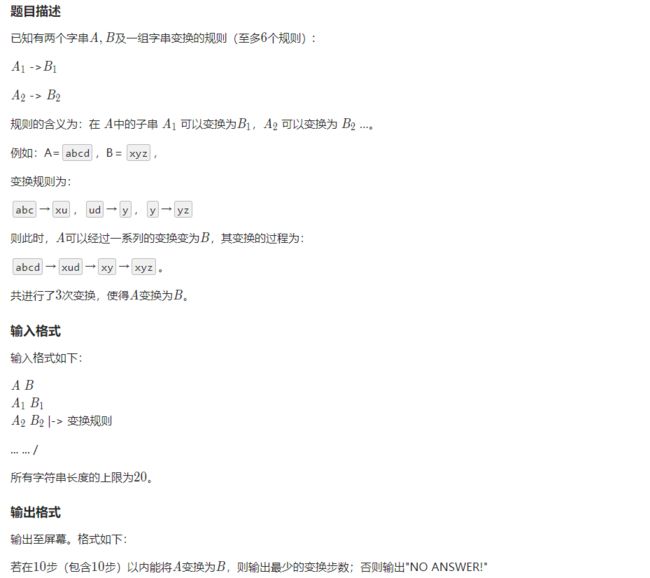- 进程 ⇢ JVM ⇢ 线程 + 内存关系
MYGAG
jvm
.从零到跑起一个Java程序OS创建进程execvejava…→新进程的地址空间、handle、时间片就位。JavaLauncher进场可执行文件里的C/C++的main()解析参数,dlopenlibjvm.so/jvm.dll。JNI_CreateJavaVM诞生JVM实例△分配堆、元空间、代码缓存等△拉起GC/JIT/信号处理等守护线程把Launcher的原生线程变成Javamain线程开始
- 145、将程序划分为模块:深入理解C++中的模块化编程
raspberrypi5
C++编程入门与实践C++模块化编程头文件
将程序划分为模块:深入理解C++中的模块化编程1.模块化编程的意义在软件开发中,将大型程序划分为较小的模块是一种常见的实践。这种做法不仅提高了代码的可维护性和可读性,还便于团队协作。通过将功能分离到不同的模块中,开发者可以专注于特定的功能实现,而不必担心整个程序的复杂性。此外,模块化编程还有助于代码的重用,减少了冗余代码的编写。优点总结减少编译时间:小模块可以更快地编译,特别是对于大型项目,整体编
- c++ python 共享内存
qianbo_insist
音视频和c++java物联网c++c++python开发语言
一、目的是为了c++来读取并解码传递给python,Python做测试非常方便,c++和python之间必须定好协议,整体使用c++来解码,共享内存传递给python二、主类主类,串联decoder,注意decoder并没有直接在显存里面穿透,是解码以后传递给内存,从内存传给python#pragmaonce#define__STDC_CONSTANT_MACROS#defineSDL_MAIN_
- 模块三:现代C++工程实践(4篇)第一篇《C++模块化开发:从Header-only到CMake模块化》
AI迅剑
c++开发语言cmake
引言:现代C++工程化的核心挑战(终极扩展版)在云计算与物联网时代,C++项目规模呈指数级增长。传统Header-only开发模式暴露出编译效率低下、依赖管理混乱、版本冲突频发等致命问题。本文通过CMake3.22+Conan2.0工具链的深度集成,结合5个真实工业案例和200+行配置代码,系统阐述:Header-only库的模块化改造(含性能数据、内存分析)CMake高级配置技巧(目标属性、接口
- 【C++ 内存管理】静态分配和动态分配
【C++内存管理】静态分配和动态分配_静态分配内存和动态分配内存-CSDN博客1.静态分配定义:在编译阶段确定内存大小和生命周期,由编译器自动分配和释放。特点:①分配时机:程序启动时分配,程序结束时释放。②内存区域:数据段(全局变量或者静态变量)和栈区。③生命周期:与程序或模块的执行周期一致。④大小固定:内存大小在编译时已知,不可动态调整。⑤无需手动管理:由编译器自动释放。2.动态分配定义:在程序
- c++协程(Coroutines)-无限的整数序列
1.概要2.内容协程(Coroutines)是C++20引入的一种特性,它使得编写异步代码变得更加简单和直观。协程允许函数在执行过程中暂停并在稍后恢复,从而实现非阻塞的异步操作。以下是对C++协程的详细介绍:一、协程的基本概念协程是一种计算机程序组件,用于协同完成任务的子例程。它被视为轻量级线程,拥有自己的暂停点状态。协程可以在执行过程中暂停,将当前状态保存起来,并在稍后恢复执行时恢复之前保存的状
- 支持向量机(SVM)在肝脏CT/MRI图像分类(肝癌检测)中的应用及实现
猿享天开
医学影像支持向量机机器学习人工智能算法
博主简介:CSDN博客专家、CSDN平台优质创作者,高级开发工程师,数学专业,10年以上C/C++,C#,Java等多种编程语言开发经验,拥有高级工程师证书;擅长C/C++、C#等开发语言,熟悉Java常用开发技术,能熟练应用常用数据库SQLserver,Oracle,mysql,postgresql等进行开发应用,熟悉DICOM医学影像及DICOM协议,业余时间自学JavaScript,Vue,
- C++高级编程(7)-- 协程在C++中的应用
给你一颗语法糖
C++高级编程c++开发语言
协程在C++中的应用随着现代编程范式的发展,协程(Coroutines)已经成为了并发编程和异步编程的一个重要工具。在C++中,协程是一种能够被挂起和重新恢复执行的函数,它允许程序员以一种更加直观和简洁的方式来编写异步代码。本篇博客将深入探讨C++中的协程概念、实现原理以及高级应用案例,帮助读者更好地理解和应用这一强大的编程技术。协程基础在C++20标准中,协程是通过关键字co_await,co_
- 简述C++ nlohmann/json 库
ikkkkkkkl
jsonc++nlohmann
目录JSON概述nlohmann/json库的使用创建json数组/对象字符串解析(parse反序列化)数据访问序列化文件读写JSON概述JSON(JavaScripObjectNotation)是一种轻量级、跨语言的数据交换格式。它基于ECMAScript子集,以独立于编程语言的文本格式存储和表示数据,简洁清晰的结构使其成为理想的数据交换语言,易读、易写且便于机器解析生成,能提升网络传输效率。J
- C++中noexcept的具体特性及其代码示例
码事漫谈
c++c++开发语言
文章目录1.**作为异常说明符**2.**作为运算符**3.**性能优化**4.**异常安全性**总结1.作为异常说明符noexcept可以放在函数声明或定义的后面,表示该函数不会抛出任何异常。如果函数在运行时抛出异常,程序会立即终止,并调用std::terminate()函数。特性:编译时检查:编译器会检查函数是否可能抛出异常。如果函数内部调用了可能抛出异常的代码,编译器会报错。运行时终止:如果
- 搜索之BFS
Luther coder
宽度优先c++
目录一.BFS简介二.BFS主要应用和实现三.典型例题(1)P1443马的遍历-洛谷(2)P8693[蓝桥杯2019国AC]大胖子走迷宫-洛谷四.总结一.BFS简介BFS(图论):广度优先搜索,是一种用于遍历或搜索树或图的算法。所谓广度优先,就是说按照圈层搜索。二.BFS主要应用和实现在搜索算法中,该BFS常常指利用队列实现广度优先搜索,从而寻找最短距离。与图论中的BFS算法有一定相似之处,但并不
- 现代 C++ 容器深度解析及实践
mxpan
c++c++开发语言
一、线性容器:std::array与std::forward_list1.std::array:固定大小的高效容器在传统C++中,数组与vector的抉择常让人纠结:数组缺乏安全检查,vector存在动态扩容开销。C++11引入的std::array完美平衡了两者优势:特性解析:编译期确定大小,内存连续分配,访问效率与C数组一致;封装了迭代器、size()、empty()等标准接口,兼容STL算法
- C++从入门到放弃
一家之主呆呆蟹
C++c++
C++学习笔记--目录C++学习笔记1.C++命名空间2.继承与多态3.函数重载4.引用5.构造函数与析构函数6.初始化列表7.explicit关键字8.static静态成员和友元函数与友元类、内部类9.模板10.string11.vector12.List13.vector和list的区别及使用场景14.deque15.stack16.queue17.priority_queue18.set|m
- C++从入门到放弃--5.scanf()和printf()
目录5.1回顾cin和cout5.2printf()5.2.1printf()和scanf()5.2.1.1I/O的优缺点5.2.1.2操作5.2.1.3其他5.3scanf()Hello~下午好啊,告诉你们个事情:今天?更开始吧~(长文预警!!!)5.1回顾cin和cout前四章节,我们都对cin和cout有或多或少的了解,我们来回顾一下。cout是一个ostream类对象,cin是一个istr
- 『 C++入門到放棄 』 - vector 容器
逐花归海.
c++数据结构开发语言笔记
一、什麼是vectorvector是C++提供的一個容器(container),其底層邏輯類似於順序表二、vector接口(1)宣告&初始化std::vectorv;//空vectorstd::vectorv(5);//初始化為5個0(不給值默認為0)std::vectorv(5,10);//初始化為5個10std::vectorv={1,2,3};//使用初始化列表(2)基本操作v.push_b
- 『 C++入門到放棄 』- string
逐花归海.
c++程序人生开发语言c语言
C++學習筆記-string一、什麼是string?string是C++中標準函數庫中的一個類,其包含在中該類封裝了C語言中字符串操作,提供內存管理自動化與更多的操作支持複製、比較、插入、刪除、查找等功能二、常用接口整理類別常用方法/說明建立與指定std::strings="hello";長度s.size()、s.length()存取s[0]、s.at(0)(有邊界檢查)新增s.push_back
- vscode C++环境配置(供自己查阅)
想要躺平的一枚
VSCODEvscode
目录前言一、配置文件1、.vscode(1)c_cpp_properties.json(2)tasks.json(3)launch.json(4)settings.json参考链接:link前言 vscode可以当成一种强大的编辑器,只能够写代码(像VS这种IDE是集成编辑器、编译器,调试等等所有环境一起)。想要运行代码,还需要配置编译器,C++常用的编译器为MinGW,下载后将其配置到系统环境
- VScode 里面使用 python 去直接调用 CUDA
NeRF_er
pythonvscodepytorch
上一个帖子主要分享了如何去将C++程序打包成一个package。我们最后的目的实际上是想把CUDA的程序打包成一个Package,C++程序只是起到了桥梁的作用:首先:CUDA程序和C++的程序一样,都有一个.cu的源文件和一个.h的头文件。我们的文件包含Cpp文件组成,负责当作CUDA和Python的桥梁。还有对应的CUDA的源代码文件和头文件。将这个cpp文件命名成ext.cpp.#inclu
- 安装qt-sdk
Qt是一个跨平台的C++图形用户界面应用程序框架。Qt是完全面向对象的,很容易扩展,并且允许真正地组件编程。QtCreator是Qt被Nokia收购后推出的一款新的轻量级集成开发环境(IDE)。QTSDK包括了Qt库、QtCreatorIDE和Qt工具。QTCreator和QTSDK是需要分别单独安装的~在之前(这里:http://blog.csdn.net/arackethis/article/
- 【RTSP从零实践】4、使用RTP协议封装并传输AAC
博客主页:https://blog.csdn.net/wkd_007博客内容:嵌入式开发、Linux、C语言、C++、数据结构、音视频本文内容:介绍怎么使用RTP协议封装并传输AAC金句分享:你不能选择最好的,但最好的会来选择你——泰戈尔⏰发布时间⏰:2025-07-0118:43:18本文未经允许,不得转发!!!目录一、概述二、实现步骤、实现细节✨2.1、实现AAC文件读取器✨2.2、实现AAC
- 【归纳】C++入门算法模版总结(超级详细!!!)(包括高精度,排序,枚举,二分,搜索,动态规划等)
0.前言本文针对有一定算法基础的选手制作,收录了大部分算法的模板,详细解说可以点进去我提供的链接了解。或者进入我的主页给一点支持!本人也是一名新手,如果这篇文章有不严谨的地方或者不懂的地方可以在评论区留言,我会为你们一一解答的。【归纳】C++入门算法模版总结(包括高精度,排序,枚举,二分,搜索,动态规划等)(超级详细!!!)0.前言1.高精度1.1.单独实现1.1.1.高精度加法1.1.2.高精度
- (C++)学生管理系统(正式版)(map数组的应用)(string应用)(引用)(文件储存的应用)(C++教学)(C++项目)
目录源代码:代码详解:学生成绩管理系统实现详解一、系统整体设计思路1.数据结构选择2.功能模块划分二、关键函数实现原理1.文件存储与加载save_file函数load_file函数2.核心数据操作add函数mod函数find和del函数3.数据展示display函数statistics函数三、核心技术详解1.字符串分割技术2.map的使用技巧3.文件格式设计4.错误处理机制源代码:/**头文件部分
- 【基础】C++中的关键词
小熊猫爱编程
重新学编程c++开发语言
一、关键词的概念C++中的关键词是语言保留用来表示特定语法结构的单词,不能作为变量名、函数名或标识符使用。二、关键词有哪些在C++中有63个关键字,如下:关键词关键词关键词关键词关键词asmdoifreturntypedefautodoubleinlineshorttypeidbooldynamic_castintsignedtypenamebreakelselongsizeofunioncase
- 取余和取模到底是不是一回事?对比Python、Java、C和C++中的%运算符
霜叶桑
javapythonc语言c++
取余和取模到底是不是一回事?对比Python、JAVA、C和C++中的%运算符数学中的「取余」和「取模」计算机领域中的「取余」和「取模」Python、Java、C和C++中的`%`运算符Python:取模运算Java:取余运算C和C++:取余运算为什么一般用正除数数学中的「取余」和「取模」在纯数学中,当我们谈论整数除法a÷ba\divba÷b(aaa是被除数,bbb是除数,且b≠0b\not=0
- LeetCode-5.最长回文子串 C++实现
一.问题描述给你一个字符串s,找到s中最长的回文子串(如果字符串向前和向后读都相同,则它满足回文性。)。示例1:输入:s="babad"输出:"bab"解释:"aba"同样是符合题意的答案。示例2:输入:s="cbbd"输出:"bb"提示:1usingnamespacestd;classSolution{public:stringlongestPalindrome(strings){intn=s.
- C++基础复习笔记
xuwzen
C++c++笔记
一、数组定义在C++中,数组初始化有多种方式,以下是常见的几种方法:默认初始化数组元素未显式初始化时,内置类型(如int、float)的元素值未定义(垃圾值),类类型调用默认构造函数。intarr1[5];//元素值未定义聚合初始化(列表初始化)使用花括号{}直接初始化所有元素。若列表元素少于数组长度,剩余元素默认初始化(内置类型为0)。intarr2[3]={1,2,3};//完全初始化inta
- Unity反射机制
future1412
unity游戏引擎
反射知识点回顾编译器是一种翻译程序它用于将源语言程序翻译为目标语言程序源语言程序:某种程序设计语言写成的,比如C#、C、C++、Java等语言写的程序目标语言程序:二进制数表示的伪机器代码写的程序知识点一什么是程序集程序集是经由编译器编译得到的,供进一步编译执行的那个中间产物在WINDOWS系统中,它一般表现为后缀为·dll(库文件)或者是·exe(可执行文件)的格式说人话:程序集就是我们写的一个
- 学cpp c++怎么才能找到嵌入式开发工作
程序员
前言Thelasttime,Ihavelearned这个问题,也是最近两次答疑星球同学提问很多问题中的一个共性问题,比如提问的下面这些问题:嵌入式我需要专门学习什么技术吗?需不需要开发板?想从事嵌入式linux,但是看boss上面有搞摄像头的,有搞车载传感器的...感觉技术栈好杂,马上秋招了,该如何入手?嵌入式linux和这种普通的cpp开发区别在哪里,面试的时候侧重于哪里?我想重点投嵌入式开发,
- SQLiteC/C++接口详细介绍sqlite3_stmt类(二)
界忆
数据库SQLiteC与c++sqlite数据库
返回目录:SQLite—免费开源数据库系列文章目录上一篇:SQLiteC/C++接口详细介绍sqlite3_stmt类简介下一篇:SQLiteC/C++接口详细介绍sqlite3_stmt类(三)sqlite3_reset()功能:重置一个准备好执行的SQL语句的状态,使其可以重复执行或进行新的绑定。在SQLite3准备执行一个SQL语句之前,需要进行一系列的准备工作,包括将SQL语句编译成字节码
- SQLiteC/C++接口详细介绍sqlite3_stmt类(一)
界忆
数据库SQLiteC与c++sqlite数据库
返回目录:SQLite—免费开源数据库系列文章目录上一篇:SQLiteC/C++接口详细介绍sqlite3_stmt类简介下一篇:SQLiteC/C++接口详细介绍sqlite3_stmt类(二)序言:本文开始了SQLite的第二个类的详细介绍了,有兴趣的朋友可以关注更新一下。1、sqlite3_prepare_v2()`sqlite3_prepare_v2`是SQLite库中的一个函数,用于将一
- 集合框架
天子之骄
java数据结构集合框架
集合框架
集合框架可以理解为一个容器,该容器主要指映射(map)、集合(set)、数组(array)和列表(list)等抽象数据结构。
从本质上来说,Java集合框架的主要组成是用来操作对象的接口。不同接口描述不同的数据类型。
简单介绍:
Collection接口是最基本的接口,它定义了List和Set,List又定义了LinkLi
- Table Driven(表驱动)方法实例
bijian1013
javaenumTable Driven表驱动
实例一:
/**
* 驾驶人年龄段
* 保险行业,会对驾驶人的年龄做年龄段的区分判断
* 驾驶人年龄段:01-[18,25);02-[25,30);03-[30-35);04-[35,40);05-[40,45);06-[45,50);07-[50-55);08-[55,+∞)
*/
public class AgePeriodTest {
//if...el
- Jquery 总结
cuishikuan
javajqueryAjaxWebjquery方法
1.$.trim方法用于移除字符串头部和尾部多余的空格。如:$.trim(' Hello ') // Hello2.$.contains方法返回一个布尔值,表示某个DOM元素(第二个参数)是否为另一个DOM元素(第一个参数)的下级元素。如:$.contains(document.documentElement, document.body); 3.$
- 面向对象概念的提出
麦田的设计者
java面向对象面向过程
面向对象中,一切都是由对象展开的,组织代码,封装数据。
在台湾面向对象被翻译为了面向物件编程,这充分说明了,这种编程强调实体。
下面就结合编程语言的发展史,聊一聊面向过程和面向对象。
c语言由贝尔实
- linux网口绑定
被触发
linux
刚在一台IBM Xserver服务器上装了RedHat Linux Enterprise AS 4,为了提高网络的可靠性配置双网卡绑定。
一、环境描述
我的RedHat Linux Enterprise AS 4安装双口的Intel千兆网卡,通过ifconfig -a命令看到eth0和eth1两张网卡。
二、双网卡绑定步骤:
2.1 修改/etc/sysconfig/network
- XML基础语法
肆无忌惮_
xml
一、什么是XML?
XML全称是Extensible Markup Language,可扩展标记语言。很类似HTML。XML的目的是传输数据而非显示数据。XML的标签没有被预定义,你需要自行定义标签。XML被设计为具有自我描述性。是W3C的推荐标准。
二、为什么学习XML?
用来解决程序间数据传输的格式问题
做配置文件
充当小型数据库
三、XML与HTM
- 为网页添加自己喜欢的字体
知了ing
字体 秒表 css
@font-face {
font-family: miaobiao;//定义字体名字
font-style: normal;
font-weight: 400;
src: url('font/DS-DIGI-e.eot');//字体文件
}
使用:
<label style="font-size:18px;font-famil
- redis范围查询应用-查找IP所在城市
矮蛋蛋
redis
原文地址:
http://www.tuicool.com/articles/BrURbqV
需求
根据IP找到对应的城市
原来的解决方案
oracle表(ip_country):
查询IP对应的城市:
1.把a.b.c.d这样格式的IP转为一个数字,例如为把210.21.224.34转为3524648994
2. select city from ip_
- 输入两个整数, 计算百分比
alleni123
java
public static String getPercent(int x, int total){
double result=(x*1.0)/(total*1.0);
System.out.println(result);
DecimalFormat df1=new DecimalFormat("0.0000%");
- 百合——————>怎么学习计算机语言
百合不是茶
java 移动开发
对于一个从没有接触过计算机语言的人来说,一上来就学面向对象,就算是心里上面接受的了,灵魂我觉得也应该是跟不上的,学不好是很正常的现象,计算机语言老师讲的再多,你在课堂上面跟着老师听的再多,我觉得你应该还是学不会的,最主要的原因是你根本没有想过该怎么来学习计算机编程语言,记得大一的时候金山网络公司在湖大招聘我们学校一个才来大学几天的被金山网络录取,一个刚到大学的就能够去和
- linux下tomcat开机自启动
bijian1013
tomcat
方法一:
修改Tomcat/bin/startup.sh 为:
export JAVA_HOME=/home/java1.6.0_27
export CLASSPATH=$CLASSPATH:$JAVA_HOME/lib/tools.jar:$JAVA_HOME/lib/dt.jar:.
export PATH=$JAVA_HOME/bin:$PATH
export CATALINA_H
- spring aop实例
bijian1013
javaspringAOP
1.AdviceMethods.java
package com.bijian.study.spring.aop.schema;
public class AdviceMethods {
public void preGreeting() {
System.out.println("--how are you!--");
}
}
2.beans.x
- [Gson八]GsonBuilder序列化和反序列化选项enableComplexMapKeySerialization
bit1129
serialization
enableComplexMapKeySerialization配置项的含义
Gson在序列化Map时,默认情况下,是调用Key的toString方法得到它的JSON字符串的Key,对于简单类型和字符串类型,这没有问题,但是对于复杂数据对象,如果对象没有覆写toString方法,那么默认的toString方法将得到这个对象的Hash地址。
GsonBuilder用于
- 【Spark九十一】Spark Streaming整合Kafka一些值得关注的问题
bit1129
Stream
包括Spark Streaming在内的实时计算数据可靠性指的是三种级别:
1. At most once,数据最多只能接受一次,有可能接收不到
2. At least once, 数据至少接受一次,有可能重复接收
3. Exactly once 数据保证被处理并且只被处理一次,
具体的多读几遍http://spark.apache.org/docs/lates
- shell脚本批量检测端口是否被占用脚本
ronin47
#!/bin/bash
cat ports |while read line
do#nc -z -w 10 $line
nc -z -w 2 $line 58422>/dev/null2>&1if[ $?-eq 0]then
echo $line:ok
else
echo $line:fail
fi
done
这里的ports 既可以是文件
- java-2.设计包含min函数的栈
bylijinnan
java
具体思路参见:http://zhedahht.blog.163.com/blog/static/25411174200712895228171/
import java.util.ArrayList;
import java.util.List;
public class MinStack {
//maybe we can use origin array rathe
- Netty源码学习-ChannelHandler
bylijinnan
javanetty
一般来说,“有状态”的ChannelHandler不应该是“共享”的,“无状态”的ChannelHandler则可“共享”
例如ObjectEncoder是“共享”的, 但 ObjectDecoder 不是
因为每一次调用decode方法时,可能数据未接收完全(incomplete),
它与上一次decode时接收到的数据“累计”起来才有可能是完整的数据,是“有状态”的
p
- java生成随机数
cngolon
java
方法一:
/**
* 生成随机数
* @author
[email protected]
* @return
*/
public synchronized static String getChargeSequenceNum(String pre){
StringBuffer sequenceNum = new StringBuffer();
Date dateTime = new D
- POI读写海量数据
ctrain
海量数据
import java.io.FileOutputStream;
import java.io.OutputStream;
import org.apache.poi.xssf.streaming.SXSSFRow;
import org.apache.poi.xssf.streaming.SXSSFSheet;
import org.apache.poi.xssf.streaming
- mysql 日期格式化date_format详细使用
daizj
mysqldate_format日期格式转换日期格式化
日期转换函数的详细使用说明
DATE_FORMAT(date,format) Formats the date value according to the format string. The following specifiers may be used in the format string. The&n
- 一个程序员分享8年的开发经验
dcj3sjt126com
程序员
在中国有很多人都认为IT行为是吃青春饭的,如果过了30岁就很难有机会再发展下去!其实现实并不是这样子的,在下从事.NET及JAVA方面的开发的也有8年的时间了,在这里在下想凭借自己的亲身经历,与大家一起探讨一下。
明确入行的目的
很多人干IT这一行都冲着“收入高”这一点的,因为只要学会一点HTML, DIV+CSS,要做一个页面开发人员并不是一件难事,而且做一个页面开发人员更容
- android欢迎界面淡入淡出效果
dcj3sjt126com
android
很多Android应用一开始都会有一个欢迎界面,淡入淡出效果也是用得非常多的,下面来实现一下。
主要代码如下:
package com.myaibang.activity;
import android.app.Activity;import android.content.Intent;import android.os.Bundle;import android.os.CountDown
- linux 复习笔记之常见压缩命令
eksliang
tar解压linux系统常见压缩命令linux压缩命令tar压缩
转载请出自出处:http://eksliang.iteye.com/blog/2109693
linux中常见压缩文件的拓展名
*.gz gzip程序压缩的文件
*.bz2 bzip程序压缩的文件
*.tar tar程序打包的数据,没有经过压缩
*.tar.gz tar程序打包后,并经过gzip程序压缩
*.tar.bz2 tar程序打包后,并经过bzip程序压缩
*.zi
- Android 应用程序发送shell命令
gqdy365
android
项目中需要直接在APP中通过发送shell指令来控制lcd灯,其实按理说应该是方案公司在调好lcd灯驱动之后直接通过service送接口上来给APP,APP调用就可以控制了,这是正规流程,但我们项目的方案商用的mtk方案,方案公司又没人会改,只调好了驱动,让应用程序自己实现灯的控制,这不蛋疼嘛!!!!
发就发吧!
一、关于shell指令:
我们知道,shell指令是Linux里面带的
- java 无损读取文本文件
hw1287789687
读取文件无损读取读取文本文件charset
java 如何无损读取文本文件呢?
以下是有损的
@Deprecated
public static String getFullContent(File file, String charset) {
BufferedReader reader = null;
if (!file.exists()) {
System.out.println("getFull
- Firebase 相关文章索引
justjavac
firebase
Awesome Firebase
最近谷歌收购Firebase的新闻又将Firebase拉入了人们的视野,于是我做了这个 github 项目。
Firebase 是一个数据同步的云服务,不同于 Dropbox 的「文件」,Firebase 同步的是「数据」,服务对象是网站开发者,帮助他们开发具有「实时」(Real-Time)特性的应用。
开发者只需引用一个 API 库文件就可以使用标准 RE
- C++学习重点
lx.asymmetric
C++笔记
1.c++面向对象的三个特性:封装性,继承性以及多态性。
2.标识符的命名规则:由字母和下划线开头,同时由字母、数字或下划线组成;不能与系统关键字重名。
3.c++语言常量包括整型常量、浮点型常量、布尔常量、字符型常量和字符串性常量。
4.运算符按其功能开以分为六类:算术运算符、位运算符、关系运算符、逻辑运算符、赋值运算符和条件运算符。
&n
- java bean和xml相互转换
q821424508
javabeanxmlxml和bean转换java bean和xml转换
这几天在做微信公众号
做的过程中想找个java bean转xml的工具,找了几个用着不知道是配置不好还是怎么回事,都会有一些问题,
然后脑子一热谢了一个javabean和xml的转换的工具里,自己用着还行,虽然有一些约束吧 ,
还是贴出来记录一下
顺便你提一下下,这个转换工具支持属性为集合、数组和非基本属性的对象。
packag
- C 语言初级 位运算
1140566087
位运算c
第十章 位运算 1、位运算对象只能是整形或字符型数据,在VC6.0中int型数据占4个字节 2、位运算符: 运算符 作用 ~ 按位求反 << 左移 >> 右移 & 按位与 ^ 按位异或 | 按位或 他们的优先级从高到低; 3、位运算符的运算功能: a、按位取反: ~01001101 = 101
- 14点睛Spring4.1-脚本编程
wiselyman
spring4
14.1 Scripting脚本编程
脚本语言和java这类静态的语言的主要区别是:脚本语言无需编译,源码直接可运行;
如果我们经常需要修改的某些代码,每一次我们至少要进行编译,打包,重新部署的操作,步骤相当麻烦;
如果我们的应用不允许重启,这在现实的情况中也是很常见的;
在spring中使用脚本编程给上述的应用场景提供了解决方案,即动态加载bean;
spring支持脚本
